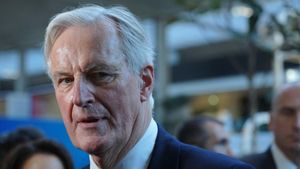U.S. airline executives recently faced sharp scrutiny from senators during a hearing focused on the controversial seat fees now prevalent across the industry. The Senate Permanent Subcommittee on Investigations looked to question the merits of these charges, which it described as "junk fees" contributing over $12 billion to airline profits between 2018 and 2023. The executives from major carriers, including American, Delta, Frontier, Spirit, and United, were asked to justify these practices amid growing discontent from travelers.
The atmosphere was tense as senators characterized the airline's current pricing strategy as little more than legalized extortion, leaving passengers feeling like they were partaking in a game of "Russian roulette". Senator Richard Blumenthal from Connecticut, who chairs the subcommittee, expressed frustration, stating, "Airlines these days view their customers as little more than walking piggy banks to be shaken down for every possible dime." The disparagement of the industry’s approach was consistent with the sentiment echoed by passengers on social media and during the hearing.
Senators zeroed in on specific practices involving additional charges for seat selection, including extra legroom and “preferred” seating locations closer to the front of the plane. These charges, which once were standard inclusions with airfare, now pile onto the total ticket price, leaving travelers to navigate through multiple fees often revealed only at the moment of boarding. Executives were put on the defense, with little clarity offered about the pricing logic behind these seemingly arbitrary fees.
During the two-hour session, Andrew Nocella, United Airlines' chief commercial officer, defended the company's fee structure by emphasizing the flexibility it offers to customers. "Providing customers with choices has been a driving factor as we design new products,” he explained. Nocella argued those seeking budget-friendly options could still select lower fares without opting for extras. This perspective, though, fell flat for critics, who pointed to the many hidden additional costs.
What truly aggravated lawmakers was the recent Senate report detailing the airlines' revenue spikes attributed to fees for seat selection alone, which exceeded $12 billion from 2018 through 2023. Compounding the issue, Frontier and Spirit airlines were flagged for incentivizing employees to enforce bag compliance aggressively, leading to unexpected charges for travelers. Such practices heightened travelers’ frustrations, prompting Senator Josh Hawley of Missouri to remark, "Flying on your airlines is horrible. It’s terrible experience. You charge people fees they know nothing about and harass them to death."
Ironically, as the hearing unfolded, air travel was on the rise once again, marking its recovery from pandemic-induced lows. The Transportation Security Administration recently recorded over 3.1 million travelers, the historical high for single-day traffic. This growing demand puts additional pressure on airlines who are nonetheless accused of failing to provide straightforward pricing.
The discussions come as the Biden administration pushes to limit so-called "junk fees," positioning airlines as prime targets. The Department of Transportation is now implementing rules requiring automatic refunds for significantly delayed or canceled flights. Upcoming proposals aim at ensuring families can sit together without incurring extra charges, which could potentially save families hundreds of dollars.
With the winds of change blowing through Washington, the hearing reflects broader trend of consumer dissatisfaction and governmental oversight of added airline fees. Lawmakers aim to hold airlines accountable, promoting transparency for consumers who often feel misled by the myriad of fees. Airlines have similarly sought to continue their legal battle against the administration’s push for clearer guidelines on fees.
The dynamics of the hearing may have significant repercussions, not only for regulation but also for the future of airline pricing structures and traveler satisfaction. While executives tout their pricing as transparent, their reluctance to embrace greater transparency raises eyebrows. A nascent force against "junk fees" appears to be gaining momentum, pushing the industry toward change.



